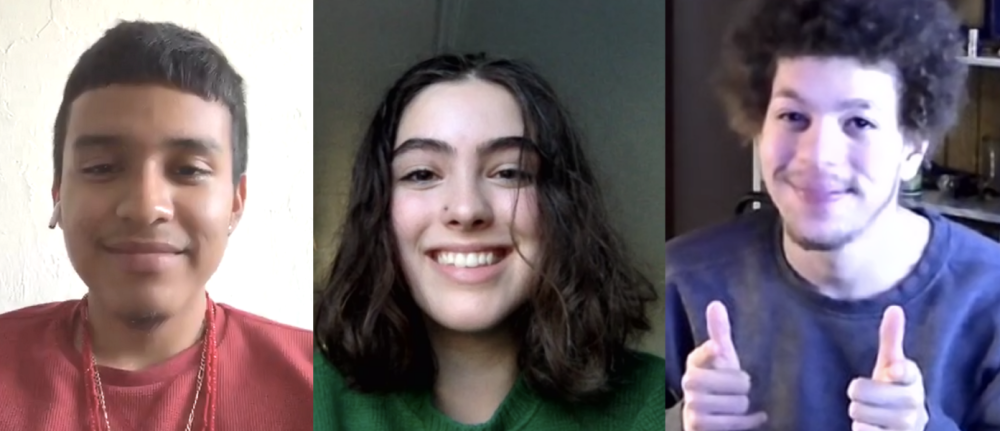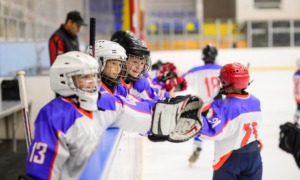
Screenshot via Youthprise
Left to right: Walter Cortina, Lincoln Bacal, Cole Stevens
Walter Cortina, a high school student in Minneapolis, doesn’t work merely for pocket money. Last spring, at age 17, he was supporting his aunt and mother, both of whom have battled breast cancer. Although his mother no longer lived in the United States — she was deported to Mexico when he was 13 — he sent her money from his job at the Regal Octopus Car Wash.
So when the pandemic hit last spring and he was laid off, he joined other students in lobbying the Minnesota Legislature for unemployment benefits.
Their efforts led to a lawsuit backed by the grant-making group Youthprise.
And on Dec. 1, the Minnesota Court of Appeals ruled that high school students in Minnesota can get unemployment payments under the CARES Act.
Not only will the court ruling impact young workers in the state, it’s a significant step for youth working to shape policy — and a significant move for a youth grant-maker with strong ties to expanded learning.
As a result of the lawsuit, “it’s estimated that there’s between $14 million and $28 million available for high school students who have lost their jobs due to COVID,” said Marcus Pope, vice president of Youthprise. Students must apply by Dec. 25. Details are at uimn.org.
Lobbying legislature didn’t work
Across the country, about 18% of high school students ages 16–17 hold jobs. The earnings of low-income student workers — who are disproportionately Black and Latino — are extremely important to them and their families.
Last spring, Cortina was a junior at the High School for Recording Arts. Before the pandemic, he was balancing school, work, student leadership activities, getting prepared for college and learning from mentors.
He discovered other students had also lost crucial jobs in the pandemic.
One was Cole Stevens, a senior at Roosevelt High School in Bloomington, Minnesota. His income from the Grind Coffee and Creamery in East Bloomington next to the Mall of America paid rent and bought groceries for him and his father.
“Last year, I was scrubbing floors and still trying to figure out what I wanted to do with my life,” Stevens said. “I didn’t even know that my state legislators’ email and phone number were on a public website for everyone to see. I didn’t know that you could just talk to them.”
Another student was Lincoln Bacal, a senior at Venture Academy, who was furloughed from the ice cream shop Sebastian Joe’s.
The students came together over the issue.
“Why are we one of the only states in the country where high schoolers can’t receive unemployment benefits?” Bacal asked. In Minnesota, a 1939 law banned high school students from getting those payments, although the U.S. Labor Department said the CARES Act was intended to cover full-time students working part time .
The students began collecting information. They worked with Youthprise to gain a grant to do political organizing on the issue.
When their efforts to get the Minnesota legislature to change the law failed, the idea of a lawsuit arose.
The Youthprise board agreed the organization should join the suit.
“They were very, very supportive,” said Wokie Weah, Youthprise president.
The organization’s stated mission is to increase equity with and for Minnesota’s indigenous, low-income and racially diverse youth.
“It was a matter of equity. Some young people could get support from their families [if they lost their jobs] but for a lot of other young people that is just not the reality,” she said.
Youthprise had long been involved in policy advocacy, but had never before been involved in litigation. They had a pro bono attorney, Greg Merz, and they saw widespread support on the issue, including that of state Attorney General Keith Ellison.





























